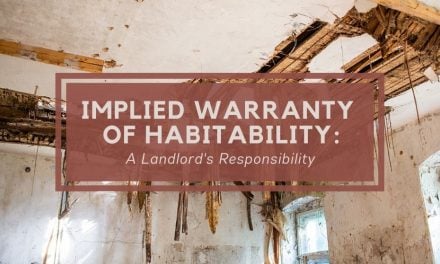Credit reports are available to both property management companies as well as private landlords and costs around ten dollars. The credit report gives insight into how well the tenant pays their bills. Credit scores are a very legitimate and important piece of information that will give you an idea as to whether or not your tenant can be counted on to pay the rent and if they have enough cash leftover after paying off debtors. A credit score under 600 used to disqualify an applicant but nowadays credit scores are looked upon with a little more leniency than they used to be. The economic downfall in 2008 has changed this criteria a bit. A closer look has to be taken at the credit report. Many people, people looking to rent homes in fact, had their homes foreclosed upon and their credit has taken a big hit. If a prospect has a squeaky clean track record other than the foreclosure or short sale I often will consider it as less of an infraction since it is so common and really something that was not an option to many homeowners who found themselves in a bad mortgage. Another item that I overlook is poor credit history due to medical bills. We all know that medical bills can be extraordinarily expensive and sometimes unavoidable. Some things on a credit report that I never overlook are when a prospect hasn’t paid their utility bills, if they have an eviction, or collections that are within the last 6 months.
It’s important to look at the credit report closely as it can really paint a very accurate picture of how the prospect handles money. Tracking down tenants to collect rent every month is not something that any landlord or property manager wants to do. A credit check shows you current and delinquent accounts, collections, monthly obligations, account balances, FICO credit score, and more.
My Rule of Thumb
-
Credit Scores are not as straight forward as you might think. Different credit reporting agencies report scores differently, so basing a decision on a score is not always going to provide the same results across all major credit agencies. For example, if the tenant recently lost their home to short sale or foreclosure, their score might be very low based entirely upon the loss of their home and should be factored in accordingly. Most landlords I have spoken with do not reject prospective tenants based on poor credit from the loss of a home.
-
When a score is near or above 650, generally you can count on the tenant as a responsible bill payer. However, it’s still a good idea to review the content of the report to make sure there are no current obligations past due. If current obligations are past due, this is an indication that the tenant is financially strapped and may not be able to afford rent.
-
Another component of a poor credit score can be related to medical bills. An uninsured person with even a short hospital stay can rack up tens to hundreds of thousands of dollars in medical bills in short order. It’s fairly impractical for most people to pay these bills at the time of visit and as such they can often be turned into collection. Because of this medical bills are often disregarded or lesser regarded when considering a prospective tenant’s credit worthiness. It is however important to take into consideration the tenant will have a portion of their income going to these bills, likely from garnishment. This reduces their income to afford rent and will impact your income to rent formula.








Thank you for an excellent article again…..with the crux of foreclosures and the economic reality of homeowners in the past becoming renters again…my office adjusted to meet that challenge with the following:
Our decision is based on several factors: stability & history of income, your credit report, public records, your ability to make payments on time & abiding by contract terms and conditions. Rental history or ownership is also investigated & considered, along with verifying your sources of income. Combined gross monthly income for applicant(s) must be at least 2 ½ times the monthly rent or more.
Applicant(s) with an unlawful detainer action will not be accepted. Credit reports that-for example-show a history of gas/electric/water account collections, judgments and/or liens with no positive trade lines will result in denial of the application. Foreclosure actions are generally disregarded, along with medical collection accounts. A qualified guarantor will be considered if there is no credit, rental history, bankruptcy, or insufficient income for applicant(s). Guarantor is required to submit an application.